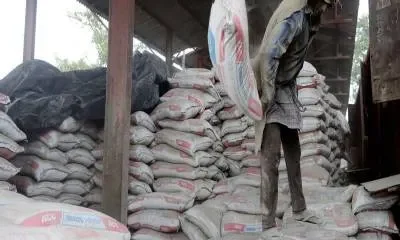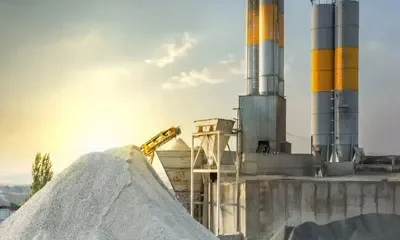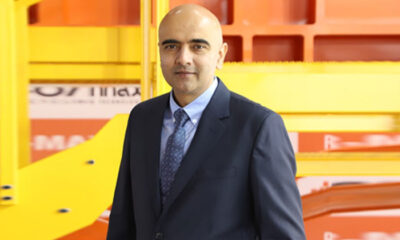Economy & Market
Rocky road ahead
Published
9 years agoon
By
admin
The cement industry is likely to hit the pause button on the backdrop of recent developments like demonetisation, pending legislations like RERA & GST, and rising crude oil prices.
Housing and construction are the sectors most impacted by demonetisation. While market participants aver things will normalise in three-six months, the impact is enough to postpone the much-awaited recovery in cement demand by another year or so. Further, we fear a longer slump in secondary/unorganised real estate markets which drive a large proportion of cement sales (IHB). We also do not believe that a rebound in infrastructure demand will be enough to offset the above-mentioned slump in housing.
Given the impending slowdown in secondary/unorganised real estate markets, the vulnerability is higher for companies which derive bulk of their profitability from higher realisations (higher trade sales).
Cement sector valuations were pricing in a strong recovery pre-November 8, when demonetisation was announced (EV/EBITDA 12-17x 1yr Fwd). Despite recent correction, they still trade at 10-15x 1yr Fwd EV/EBITDA, once the impact of lower demand is factored in. We suspect some more downside as 3QFY17 will represent the confluence of negatives as both volumes and costs get hit.
We expect cement multiples to de-rate further. However, sector leaders (UltraTech/Shree Cement) should continue to command premium to historical averages and will be attractive when multiples approach historical averages (10x or so).
Till October, cement apparent demand had grown by ~5.1% year-on-year. Further, strong monsoons had lifted the possibility of a strong revival in demand, especially from some of the drought-hit regions in Maharashtra, Telangana and Karnataka. However, post demonetisation, things have taken a turn for the worse.
Our recent channel checks suggest sharp cuts in volumes across regions. The impact is more severe in regions with rural/IHB bias. We hear 25-50 per cent demand declines in north/central and Chhattisgarh. The more urbanised west/south are reporting ~15-30 per cent lower volumes. Parti?cipants maintain that December volumes will be worse hit compared to November. These numbers may be overstated, given extreme prevalent pessimism, but the downside is still significant. Earnings in past two-three quarters were driven by cheap pet coke. Things are likely to flip at the most inopportune time for cement firms, as spiking energy costs begin to sting at around the same time when volumes are likely to be low.
As a result 3QFY17 will be one of the worst quarters for cement companies in recent times. Upcoming elections in five states, including UP and Punjab, will likely further weigh on demand, given that the election code of conduct weighs on government spending. As a result, we remain cautious. Domestic demand growth has registered a double digit de-growth exactly once, in 4QFY01 (-10.4 per cent). This was an outcome driven by a number of factors: drought in four states, slowdown in real estate and the Gujarat earthquake.
With almost a month into the demonetisation exercise, we suspect cement demand could see a repeat of 4QFY01.
Source: HDFC Securities
Mangesh Bhadang, Analyst at brokerage Nirmal Bang, said, ‘We expect demand disruption to push down cement demand recovery by at least a year and hence capacity utilisation will be lower for a longer period than what was expected earlier.’The industry is expected to be impacted not only by the slowdown caused by the cash crunch, but also the impasse over the Goods and Services Tax (GST) Bill and the regulatory legislation for the Real Estate (Regulation and Development) Act or RERA. The impact, according to the analyst, is phenomenal: from an estimated growth rate of 6 per cent for the current fiscal made in September 2016, it now actually stands at a decline of 1.3 per cent. Fiscal 2018 is likely to see a growth rate of 6.7 per cent, making the years of high growth a thing of the past.
‘We also believe that the golden period of demand growth witnessed between FY06 to FY10 is unlikely to be repeated in the near future,’ Bhadang wrote in his note.
Impact of rising crude oil prices
As if the domestic headwinds were not enough, the industry has also to contend with the end of low input costs, giving the trend of rising crude oil prices globally. ‘Cement companies’ earnings were aided by softening of input prices over the past two years, predominantly coal/pet coke and freight rates through lower diesel prices. We believe that this period of decline in input costs is largely over, as prices of various input products like international coal, pet coke and diesel are on the rise. With demand expected to be low, we believe that cost inflation will test pricing power in the industry,’ Bhadang said.
Cement manufacturing companies in India include Ambuja Cement, ACC, UltraTech, JK Cement, Prism Cement and Shree Cements. India is the second-largest producer of cement in the world, after China.
Capacity utilisation to remain stagnant: ICRA
In the first seven months of FY17, demand growth in the cement sector was already modest at 4.8 per cent. After the note ban, the sector is likely to be affected negatively by disruption to the real estate sector, says the rating agency.
The cement sector is one of the worst hit by demonetisation. Despite limited capacity addition, capacity utilisation of the cement industry is likely to remain stagnant in fiscal year 2017 as demand growth is expected to be weak, rating agency ICRA said in a report. In the first seven months of FY17, demand growth in the cement sector was already modest at 4.8 per cent and after the note ban, is likely to be affected negatively by disruption to the real estate sector.
The cement sector is one of the worst hit by demonetisation; volumes have been dented severely and a pick-up in consumption may not happen anytime soon. Hence, the outlook for the second half of FY17 is unlikely to be as bright as anticipated earlier by many analysts.
Uncharted Territory
Uncertainty remains on demand, pricing and margins, says Vivek Maheshwari, Investment Analyst.
The Indian cement sector is on a shaky foundation and there are multiple uncertainties as we start the seasonally strong period (Jan-May) of 2017.
Demonetisation has impacted demand, although flattish production volume (year-on-year) in November 2016 is a positive. The industry is hopeful of a recovery through 2017, though monthly trends could be quite volatile. Demonetisation has, however, impacted prices, which are down 1-5 per cent month-on-month in December 16, as per our channel checks. The timing of demonetisation is quite inappropriate for the industry, as energy costs (pet coke, coal and diesel) have been steadily trending up. We expect heightened volatility in margins ahead, as several variables are at play and we are negative on all the stocks except UltraTech which is our only relative pick.
Concerns on demand
Cement volumes across regions have been impacted, particularly in December 16. While liquidity issues will ease gradually, the channel is still concerned on demand due to factors like impact on end-user industry and supply-chain issues in case of ancillary industries (sand, aggre?gates, etc.) and hence, demand trend may be weak. The government’s thrust on social housing and infrastructure should support cement demand but we are unsure if this could fully offset the impact.
Pricing pressures
Demand pressures may deter the cement industry from increasing prices significantly, which is typically expected during 1H-2017 due to seasonality. While the industry has shown strong discipline in the past few quarters, a potentially weak demand trend may change dynamics and result in pricing pressures. Prices have actually declined by 1-5 per cent across regions, though the industry would attempt to reverse these in the coming months.
High volatility in margins ahead
For example, pet coke prices are up 140 per cent from the bottom, while imported coal prices are up 79 per cent and rupee depreciation further exacerbates the impact; diesel prices are also up 31 per cent from the recent lows. This would impact sector margins in the near term and would also delay the margin recovery by a few quarters.
Negative view stays
This has taken multiples to above-historical averages, also partially on expectations of a strong recovery in margins, which we believe are at risk in the current context, as volumes are weak, pricing power is impaired, and costs are rising.
A majority of cement demand (55-65 per cent) comes from the housing sector. It is important to see how the sector is going to fare in 2017. The end of 2017 is most likely to see the initiation of a robust and sustainable growth trajectory for India’s real estate industry and will be recognised as the base for the future growth of this sector, says Shishir Baijal, Chairman and Managing Director, Knight Frank (India) Pvt. Ltd.
In the first week of November 2016 the overall positive sentiment was attributed to a host of factors including the political stability, regulatory environment, enhanced infrastructure, strong investments, approval to the GST bill, and amendments to REITs.
Just when the industry was was gearing up to meet the deadlines set by the government for Real Estate (Real Estate Regulation & Development Act Act 2016 (RERA) and Goods and Services Tax (GST),) it received a jolt in the form of demonetisation of the INR 500 and 1000 currency notes with immediate effect.
Another imminent change that will impact the sector in the days to come is the partial implementation of RERA. RERA, once implemented, will increase transparency, which in turn will bring back buyer confidence. Developers, on the other hand, will have to adjust to the new environment and more specifically, they have to change their business model whilst adhering to stricter compliance norms.
The impact of demonetisation is a transient one and the economy will undergo structural changes for the first three quarters of 2017. The industry awaits the implementation of policy reforms like RERA & GST, medium term impact of demonetisation and listing of REIT. During this phase, enterprises are expected to streamline their business processes and implement international best practices to adhere to the upcoming changed business environment. There will be a greater influence of FDI (Foreign Direct Investment) that will help create jobs and revitalise growth within the sector. Overall, institutional participation-both domestic and global markets-will help the sector in getting high quantum of funds at competitive rates. In view of the various procedural changes adopted by the government, it is also expected to be an important facilitator in bringing back stability within the real estate sector.
The end of 2017 is most likely to see the initiation of a robust and sustainable growth trajectory for India’s real estate industry and will be recognised as the base for the future growth of this sector.
You may like
Concrete
FORNNAX Appoints Dieter Jerschl as Sales Partner for Central Europe
Published
2 weeks agoon
February 5, 2026By
admin
FORNNAX TECHNOLOGY has appointed industry veteran Dieter Jerschl as its new sales partner in Germany to strengthen its presence across Central Europe. The partnership aims to accelerate the adoption of FORNNAX’s high-capacity, sustainable recycling solutions while building long-term regional capabilities.
FORNNAX TECHNOLOGY, one of the leading advanced recycling equipment manufacturers, has announced the appointment of a new sales partner in Germany as part of its strategic expansion into Central Europe. The company has entered into a collaborative agreement with Mr. Dieter Jerschl, a seasoned industry professional with over 20 years of experience in the shredding and recycling sector, to represent and promote FORNNAX’s solutions across key European markets.
Mr. Jerschl brings extensive expertise from his work with renowned companies such as BHS, Eldan, Vecoplan, and others. Over the course of his career, he has successfully led the deployment of both single machines and complete turnkey installations for a wide range of applications, including tyre recycling, cable recycling, municipal solid waste, e-waste, and industrial waste processing.
Speaking about the partnership, Mr. Jerschl said,
“I’ve known FORNNAX for over a decade and have followed their growth closely. What attracted me to this collaboration is their state-of-the-art & high-capacity technology, it is powerful, sustainable, and economically viable. There is great potential to introduce FORNNAX’s innovative systems to more markets across Europe, and I am excited to be part of that journey.”
The partnership will primarily focus on Central Europe, including Germany, Austria, and neighbouring countries, with the flexibility to extend the geographical scope based on project requirements and mutual agreement. The collaboration is structured to evolve over time, with performance-driven expansion and ongoing strategic discussions with FORNNAX’s management. The immediate priority is to build a strong project pipeline and enhance FORNNAX’s brand presence across the region.
FORNNAX’s portfolio of high-performance shredding and pre-processing solutions is well aligned with Europe’s growing demand for sustainable and efficient waste treatment technologies. By partnering with Mr. Jerschl—who brings deep market insight and established industry relationships—FORNNAX aims to accelerate adoption of its solutions and participate in upcoming recycling projects across the region.
As part of the partnership, Mr. Jerschl will also deliver value-added services, including equipment installation, maintenance, and spare parts support through a dedicated technical team. This local service capability is expected to ensure faster project execution, minimise downtime, and enhance overall customer experience.
Commenting on the long-term vision, Mr. Jerschl added,
“We are committed to increasing market awareness and establishing new reference projects across the region. My goal is not only to generate business but to lay the foundation for long-term growth. Ideally, we aim to establish a dedicated FORNNAX legal entity or operational site in Germany over the next five to ten years.”
For FORNNAX, this partnership aligns closely with its global strategy of expanding into key markets through strong regional representation. The company believes that local partnerships are critical for navigating complex market dynamics and delivering solutions tailored to region-specific waste management challenges.
“We see tremendous potential in the Central European market,” said Mr. Jignesh Kundaria, Director and CEO of FORNNAX.
“Partnering with someone as experienced and well-established as Mr. Jerschl gives us a strong foothold and allows us to better serve our customers. This marks a major milestone in our efforts to promote reliable, efficient and future-ready recycling solutions globally,” he added.
This collaboration further strengthens FORNNAX’s commitment to environmental stewardship, innovation, and sustainable waste management, supporting the transition toward a greener and more circular future.
Concrete
Budget 2026–27 infra thrust and CCUS outlay to lift cement sector outlook
Published
2 weeks agoon
February 2, 2026By
admin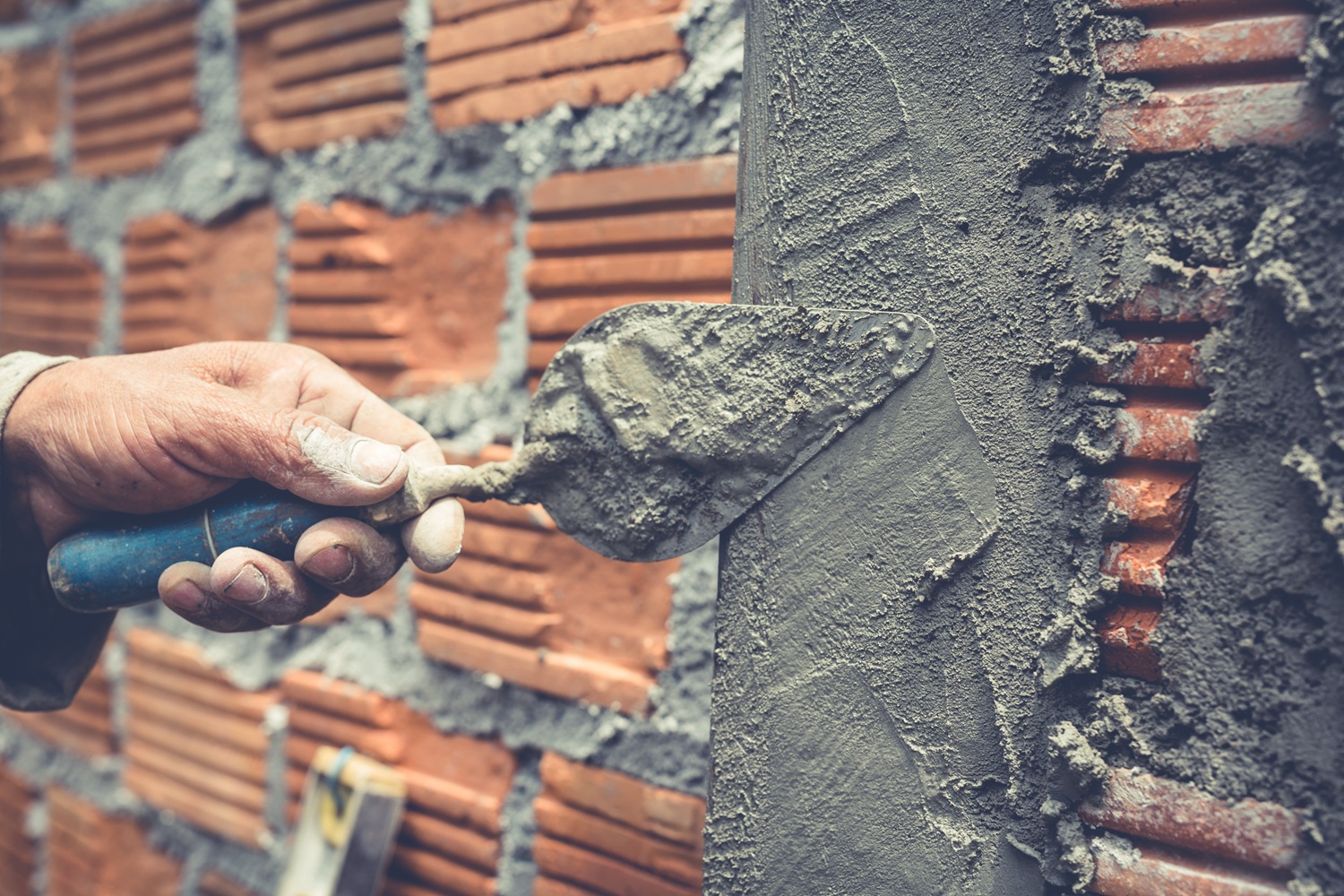
Higher capex, city-led growth and CCUS funding improve demand visibility and decarbonisation prospects for cement
Mumbai
Cement manufacturers have welcomed the Union Budget 2026–27’s strong infrastructure thrust, with public capital expenditure increased to Rs 12.2 trillion, saying it reinforces infrastructure as the central engine of economic growth and strengthens medium-term prospects for the cement sector. In a statement, the Cement Manufacturers’ Association (CMA) has welcomed the Union budget 2026-27 for reinforcing the ambitions for the nation’s growth balancing the aspirations of the people through inclusivity inspired by the vision of Narendra Modi, Prime Minister of India, for a Viksit Bharat by 2047 and Atmanirbharta.
The budget underscores India’s steady economic trajectory over the past 12 years, marked by fiscal discipline, sustained growth and moderate inflation, and offers strong demand visibility for infrastructure linked sectors such as cement.
The Budget’s strong infrastructure push, with public capital expenditure rising from Rs 11.2 trillion in fiscal year 2025–26 to Rs 12.2 trillion in fiscal year 2026–27, recognises infrastructure as the primary anchor for economic growth creating positive prospects for the Indian cement industry and improving long term visibility for the cement sector. The emphasis on Tier 2 and Tier 3 cities with populations above 5 lakh and the creation of City Economic Regions (CERs) with an allocation of Rs 50 billion per CER over five years, should accelerate construction activity across housing, transport and urban services, supporting broad based cement consumption.
Logistics and connectivity measures announced in the budget are particularly significant for the cement industry. The announcement of new dedicated freight corridors, the operationalisation of 20 additional National Waterways over the next five years, the launch of the Coastal Cargo Promotion Scheme to raise the modal share of waterways and coastal shipping from 6 per cent to 12 per cent by 2047, and the development of ship repair ecosystems should enhance multimodal freight efficiency, reduce logistics costs and improve the sector’s carbon footprint. The announcement of seven high speed rail corridors as growth corridors can be expected to further stimulate regional development and construction demand.
Commenting on the budget, Parth Jindal, President, Cement Manufacturers’ Association (CMA), said, “As India advances towards a Viksit Bharat, the three kartavya articulated in the Union Budget provide a clear context for the Nation’s growth and aspirations, combining economic momentum with capacity building and inclusive progress. The Cement Manufacturers’ Association (CMA) appreciates the Union Budget 2026-27 for the continued emphasis on manufacturing competitiveness, urban development and infrastructure modernisation, supported by over 350 reforms spanning GST simplification, labour codes, quality control rationalisation and coordinated deregulation with States. These reforms, alongside the Budget’s focus on Youth Power and domestic manufacturing capacity under Atmanirbharta, stand to strengthen the investment environment for capital intensive sectors such as Cement. The Union Budget 2026-27 reflects the Government’s focus on infrastructure led development emerging as a structural pillar of India’s growth strategy.”
He added, “The Rs 200 billion CCUS outlay for various sectors, including Cement, fundamentally alters the decarbonisation landscape for India’s emissions intensive industries. CCUS is a significant enabler for large scale decarbonisation of industries such as Cement and this intervention directly addresses the technology and cost requirements of the Cement sector in context. The Cement Industry, fully aligned with the Government of India’s Net Zero commitment by 2070, views this support as critical to enabling the adoption and scale up of CCUS technologies while continuing to meet the Country’s long term infrastructure needs.”
Dr Raghavpat Singhania, Vice President, CMA, said, “The government’s sustained infrastructure push supports employment, regional development and stronger local supply chains. Cement manufacturing clusters act as economic anchors across regions, generating livelihoods in construction, logistics and allied sectors. The budget’s focus on inclusive growth, execution and system level enablers creates a supportive environment for responsible and efficient expansion offering opportunities for economic growth and lending momentum to the cement sector. The increase in public capex to Rs 12.2 trillion, the focus on Tier 2 and Tier 3 cities, and the creation of City Economic Regions stand to strengthen the growth of the cement sector. We welcome the budget’s emphasis on tourism, cultural and social infrastructure, which should broaden construction activity across regions. Investments in tourism facilities, heritage and Buddhist circuits, regional connectivity in Purvodaya and North Eastern States, and the strengthening of emergency and trauma care infrastructure in district hospitals reinforce the cement sector’s role in enabling inclusive growth.”
CMA also noted the Government’s continued commitment to fiscal discipline, with the fiscal deficit estimated at 4.3 per cent of GDP in FY27, reinforcing macroeconomic stability and investor confidence.
Concrete
JK Cement Crosses 31 MTPA Capacity with Commissioning of Buxar Plant in Bihar
Published
3 weeks agoon
January 30, 2026By
admin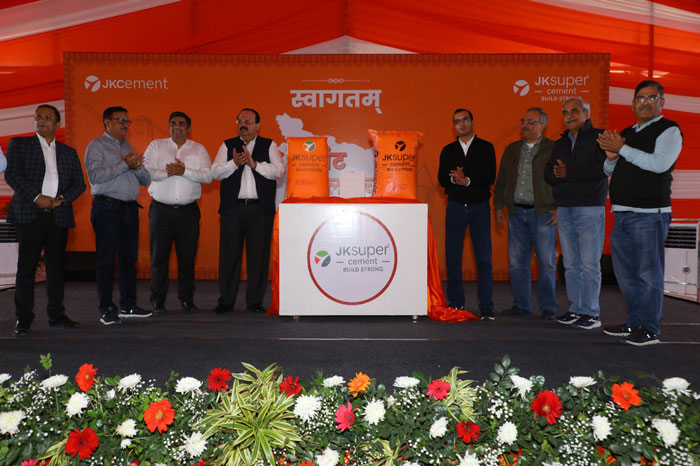
JK Cement has commissioned a 3 MTPA Grey Cement plant in Buxar, Bihar, taking its total capacity to 31.26 MTPA and placing it among India’s top five grey cement producers. The ₹500 crore investment strengthens the company’s national footprint while supporting Bihar’s infrastructure growth and local economic development.
JK Cement Ltd., one of India’s leading cement manufacturers, has announced the commissioning of its new state-of-the-art Grey Cement plant in Buxar, Bihar, marking a significant milestone in the company’s growth trajectory. With the commissioning of this facility, JK Cement’s total production capacity has increased to 31.26 million tonnes per annum (MTPA), enabling the company to cross the 30 MTPA threshold.
This expansion positions JK Cement among the top five Grey Cement manufacturers in India, strengthening its national footprint and reinforcing its long-term growth strategy.
Commenting on the strategic achievement, Dr Raghavpat Singhania, Managing Director, JK Cement, said, “Crossing 31 MTPA is a significant turning point in JK Cement’s expansion and demonstrates the scale, resilience, and aspirations of our company. In addition to making a significant contribution to Bihar’s development vision, the commissioning of our Buxar plant represents a strategic step towards expanding our national footprint. We are committed to developing top-notch manufacturing capabilities that boost India’s infrastructure development and generate long-term benefits for local communities.”
The Buxar plant has a capacity of 3 MTPA and is spread across 100 acres. Strategically located on the Patna–Buxar highway, the facility enables faster and more efficient distribution across Bihar and adjoining regions. While JK Cement entered the Bihar market last year through supplies from its Prayagraj plant, the Buxar facility will now allow the company to serve the state locally, with deliveries possible within 24 hours across Bihar.
Sharing his views on the expansion, Madhavkrishna Singhania, Joint Managing Director & CEO, JK Cement, said, “JK Cement is now among India’s top five producers of grey cement after the Buxar plant commissioning. Our capacity to serve Bihar locally, more effectively, and on a larger scale is strengthened by this facility. Although we had already entered the Bihar market last year using Prayagraj supplies, local manufacturing now enables us to be nearer to our clients and significantly raise service standards throughout the state. Buxar places us at the center of this chance to promote sustainable growth for both the company and the region in Bihar, a high-growth market with strong infrastructure momentum.”
The new facility represents a strategic step in supporting Bihar’s development vision by ensuring faster access to superior quality cement for infrastructure, housing, and commercial projects. JK Cement has invested approximately ₹500 crore in the project. Construction began in March 2025, and commercial production commenced on January 29, 2026.
In addition to strengthening JK Cement’s regional presence, the Buxar plant is expected to generate significant direct and indirect employment opportunities and attract ancillary industries, thereby contributing to the local economy and the broader industrial ecosystem.

FORNNAX Appoints Dieter Jerschl as Sales Partner for Central Europe

Budget 2026–27 infra thrust and CCUS outlay to lift cement sector outlook

Steel: Shielded or Strengthened?

JK Cement Commissions 3 MTPA Buxar Plant, Crosses 31 MTPA

JK Cement Crosses 31 MTPA Capacity with Commissioning of Buxar Plant in Bihar

FORNNAX Appoints Dieter Jerschl as Sales Partner for Central Europe

Budget 2026–27 infra thrust and CCUS outlay to lift cement sector outlook

Steel: Shielded or Strengthened?

JK Cement Commissions 3 MTPA Buxar Plant, Crosses 31 MTPA








